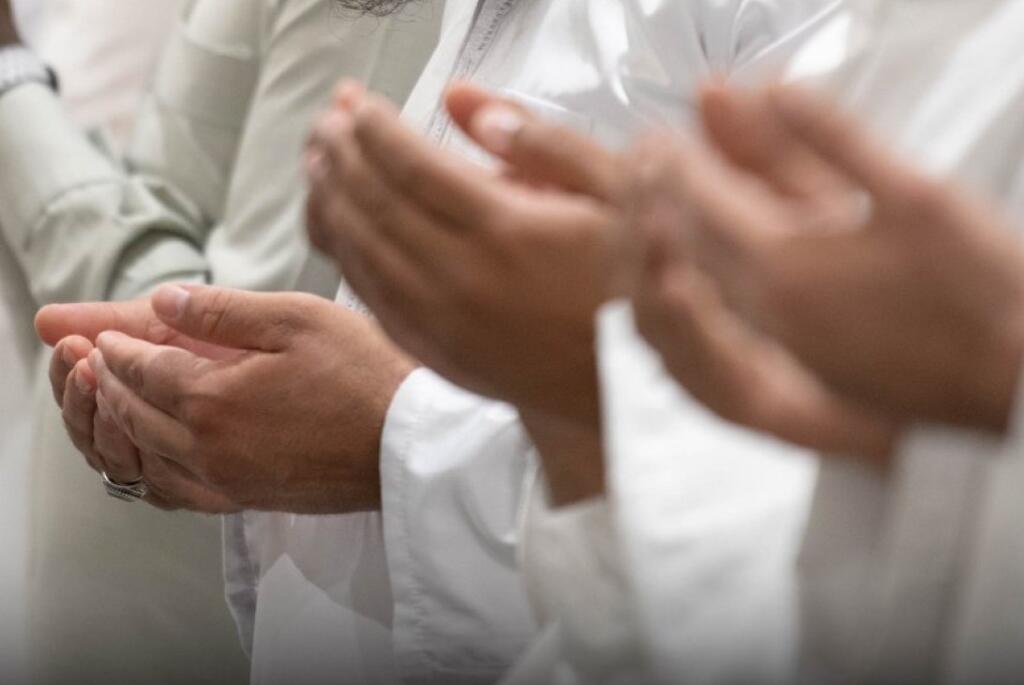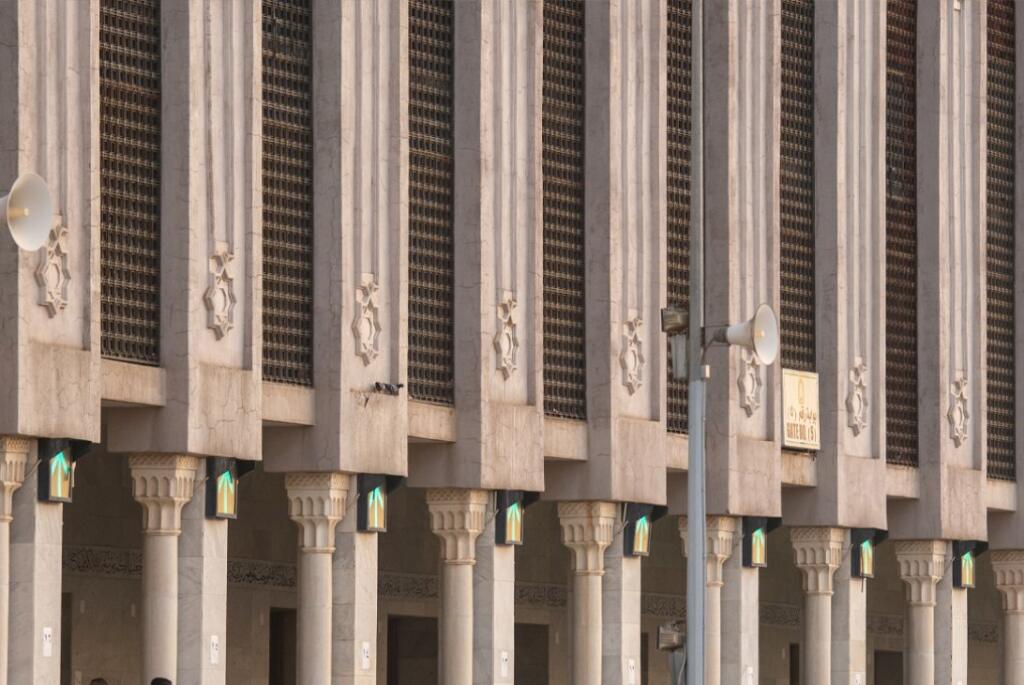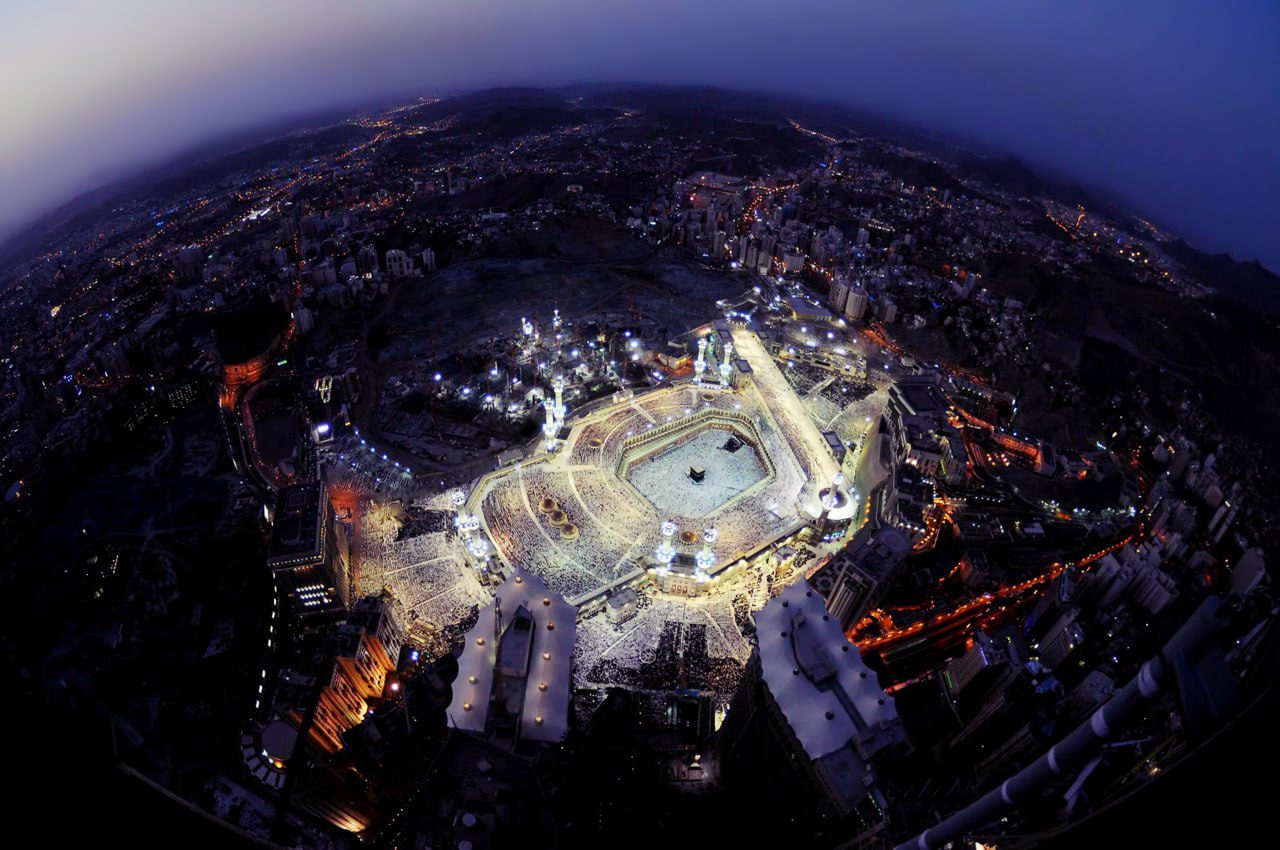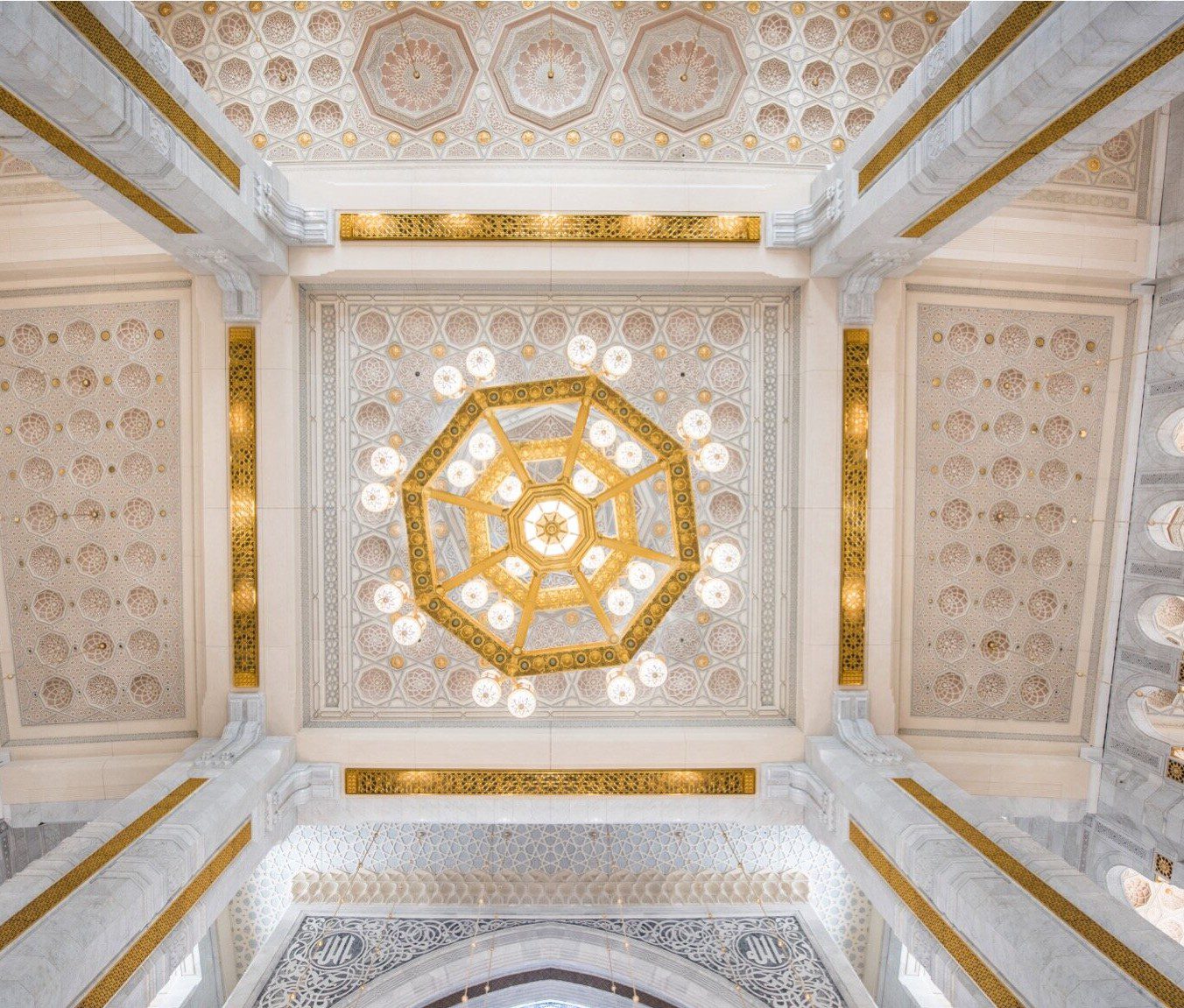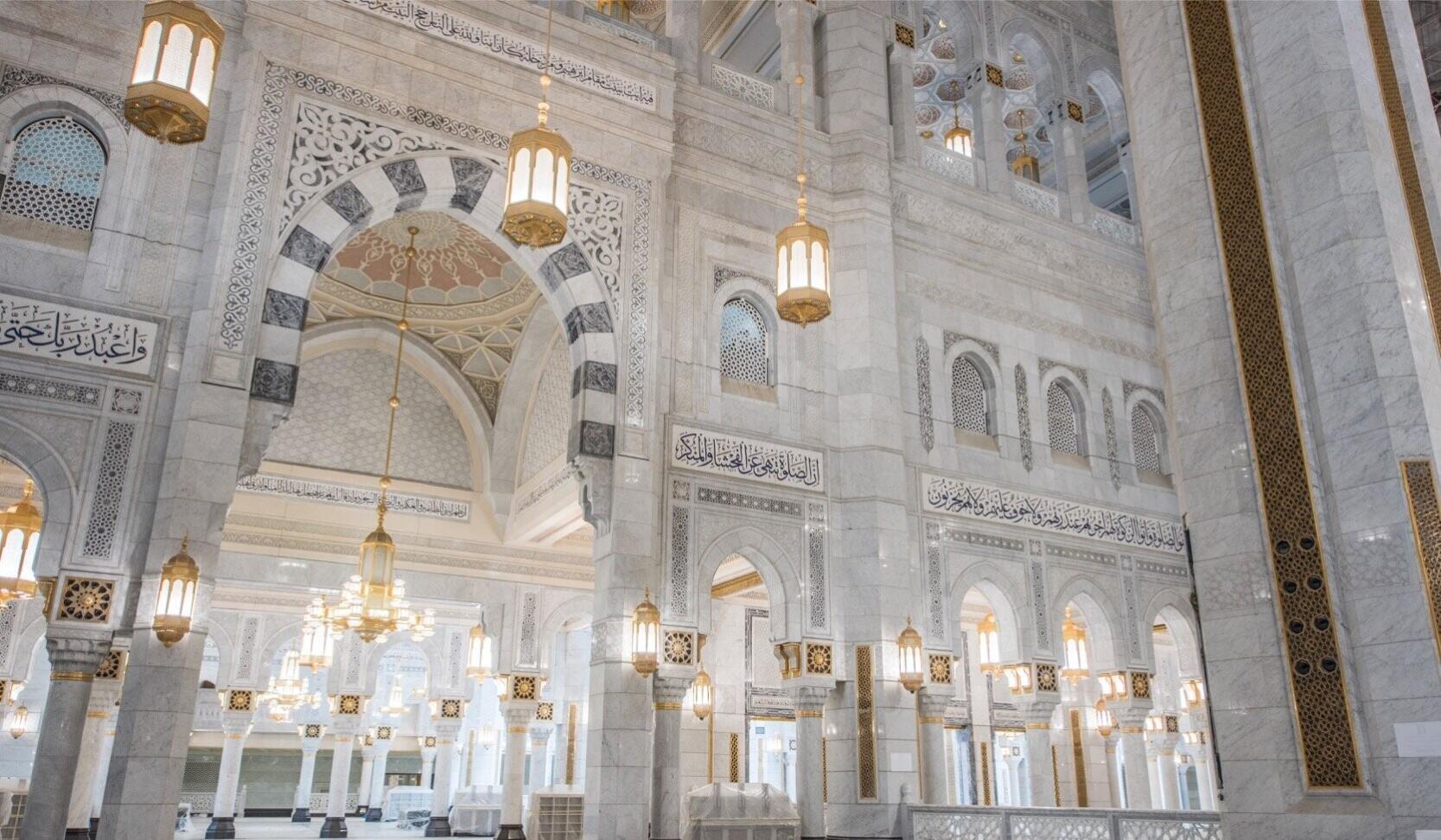Along with preparing your heart for ḥajj, it is essential to also prepare physically in order to fulfill the intended spiritual objectives of ḥajj.
1. Learn the Outer and Inner Fiqh of Hajj
Equip yourself with knowledge of the outer fiqh (method) of ḥajj and the inner fiqh (spiritual dimensions) of ḥajj. Attend courses, read books and watch video series so you’re fully equipped with all the essential guidance.
Act: Journey with the Prophet ﷺ and his Companions on the farewell ḥajj by downloading the FREE Ebook – The Prophet’s ﷺ Hajj.
2. Write a Duʿa List and Practise
Ḥajj is filled with many opportunities to make duʿā’. You will make more duʿā’ in ḥajj than you ever will in your life. The most significant time for duʿā’ will be on the Day of ʿArafah, when you should ideally spend approximately five hours in continuous supplication. However, if you’re not used to speaking to Allah regularly and making duʿā, you will struggle to do this
Thatis why preparation is key:
- Start a duʿā’ list. List your hopes, dreams and everything you want to ask Allah ﷻ for. Don’t forget the ummah in your duʿās, especially those suffering in Palestine under the barbaric Zionist oppression.
- Begin practising now. Start by making duʿā’ for just five minutes a day, then gradually increase the duration by two minutes each day. By the time you depart for ḥajj, making duʿā’ for long periods will feel much easier and more natural.
3. Choose the Right Companion
Your friends either make you or break you. This is especially true for ḥajj. Find a ḥajj buddy who will support you throughout the journey. The Messenger of Allah ﷺ said: “The example of a good companion and a bad one is like that of the seller of musk and the blacksmith. The musk seller may give you some, or you may buy it from him, or at the very least, you’ll enjoy a pleasant scent from him. As for the blacksmith, he may burn your clothes, or at the very least, you’ll inhale an unpleasant smell” (Bukhārī).
Tip: Try your best to choose a group who focus on the spirituality of ḥajj and help you achieve the main goals of ḥajj, even if it happens to be more costly.
A good companion will remind you when you forget, help you stay focused on your purpose, and encourage you to perform good deeds.
The journey becomes far more rewarding when your friend uplifts you in doing good, rather than distracting you with complaints, gossip, or negativity. Surround yourself with someone who pushes you closer to Allah. Limit your time with those who only speak about trivial worldly matters. Just as you would like an upright friend to motivate you, be that good companion and friend for others.
4. Write Your Will
The Prophet ﷺ said: “It is the duty of a Muslim who has something to bequeath that he should not spend two nights without having his will written” (Bukhārī).
Ensure you write a will (waṣiyyah) before you set off for ḥajj. Within your will, clearly outline your assets and debts, and include any personal advice or parting words you wish to leave for your loved ones. Many charitable organisations offer templates for wills that can guide you through this process.
If you have a larger estate or significant wealth, it’s wise to seek professional advice to ensure your will is distributed correctly and in accordance with Islamic guidelines.
5. Pay Your Debts
Settling debts takes precedence over performing ḥajj. The Messenger of Allah ﷺ used to ask before praying over a deceased person, “Does he owe any debts?” (Bukhārī). If someone promised to repay it, he would perform the prayer; otherwise, he would not.
You are setting out on a journey from which you may not return, so settle your debts. If you have debts that you are unable to repay, you must seek permission from your creditors before going for ḥajj — otherwise, do not go.
6. Make Amends
If you’ve wronged someone, through words, actions, or by withholding their rights, seek their forgiveness and return what is due to them. True repentance begins with setting things right with both Allah and His creation.
The Prophet ﷺ said, “Whoever has wronged his brother, in regard to his honour or anything else, let him seek his pardon today, before a Day comes when there will be no dīnar or dirham (i.e., no money for compensation). If he has good deeds, they will be taken from him in proportion to his wrongdoing. And if he has no good deeds, the sins of the wronged person will be transferred to him” (Bukhārī).
Likewise, if others have wronged you, clean your heart and forgive them too. Have hope that by showing mercy to others, Allah will also have mercy on you. Ask Allah to purify your heart, to heal its wounds, and to fill it with sincerity and peace. A clean heart is the best provision you can carry with you on this journey of a lifetime.
Masʿūd al-Hamadhānī (raḥimahullāh) would often pardon people and forgive their wrongs, saying to them, “The past is not to be mentioned.” One of his companions saw him in a dream after his demise and asked him, “What did Allah do with you?” He replied, “He made me stand in front of Him and said: ‘O Masʿūd, the past is not to be mentioned. Take him to Paradise.’”
7. Reduce Your Social Media Usage
Social media platforms are designed to be addictive. They distract us from our goals, hinder us from our social and familial responsibilities, and reduce our ability to focus. Our worship is particularly impacted, and we struggle to maintain concentration for any significant duration. Social media platforms are full of ḥarām and harmful imagery. Gazing at ḥarām is a poison which stops us from tasting the sweetness of īmān and worshipping Allah.
Start reducing your social media usage today. Consider using timers or apps on your phone to limit your access and prevent endless scrolling.
8. Increase Your Steps
Physical preparation for ḥajj is essential to help you complete your pilgrimage properly and with ease. Ḥajj is a physically demanding journey, involving long hours of walking, especially on the 10th day of Dhul Ḥijjah, when you may walk up to 30,000 steps.
To build your stamina and avoid fatigue during ḥajj, start training in advance. Create a walking schedule and begin with 30-minute walks, gradually increasing the duration each day. Try to include some incline walking to mimic the terrain you’ll encounter in ḥajj.
As you walk, get into the habit of making dhikr. This will not only prepare your body but also your heart, allowing you to spiritually connect with Allah during your physical preparation. Being physically fit will allow you to focus more on the spiritual essence of ḥajj, without being distracted or drained by physical exhaustion.
9. Drink Lots of Water
One of the most common reasons people fall ill on the Day of ʿArafah is dehydration. The heat can quickly take a toll on your body if you’re not properly hydrated.
If you’re not in the habit of drinking water regularly, start building that habit now. Gradually increase your intake throughout the day so that by the time you reach ʿArafah, staying hydrated feels natural and easy.
10. Pack Carefully
Imām al-Ghazāli (raḥimahullāh) writes, “As for provisions, one should seek them from a lawful source.” Ensure that you only use ḥalāl earnings for ḥajj so that your worship is accepted.
When packing your bags, don’t over pack or carry more than you need. Ḥajj is a journey of simplicity. It is not about excess or showing off. Don’t fall into the materialist trap and buy everything that has been marketed to you.
Tip: Take a book which increases your love of Allah ﷻ (e.g. Reflecting on the Names of Allah) and His beloved Prophet ﷺ (e.g. Meeting Muhammad).
As you pack your bags for your journey, think about what you have packed for the hereafter. Allah tells us to prepare for hajj and take provisions, however He reminds us that the best provision is taqwā:
وَتَزَوَّدُوْا فَإِنَّ خَيْرَ الزَّادِ التَّقْوَىٰ وَاتَّقُوْنِ يَـٰٓأُو۟لِى الْأَلْبَـٰبِ
“…Take provisions (for the journey) — surely the best provision is taqwā (mindfulness of Allah and piety)” (2:197).
Act: Speak to someone who has performed ḥajj and is willing to share their honest experience. Ask them about the struggles they faced during ḥajj. In your notebook, write down the challenges, mistakes and lessons they learned, and reflect on what you can learn from their experience.

